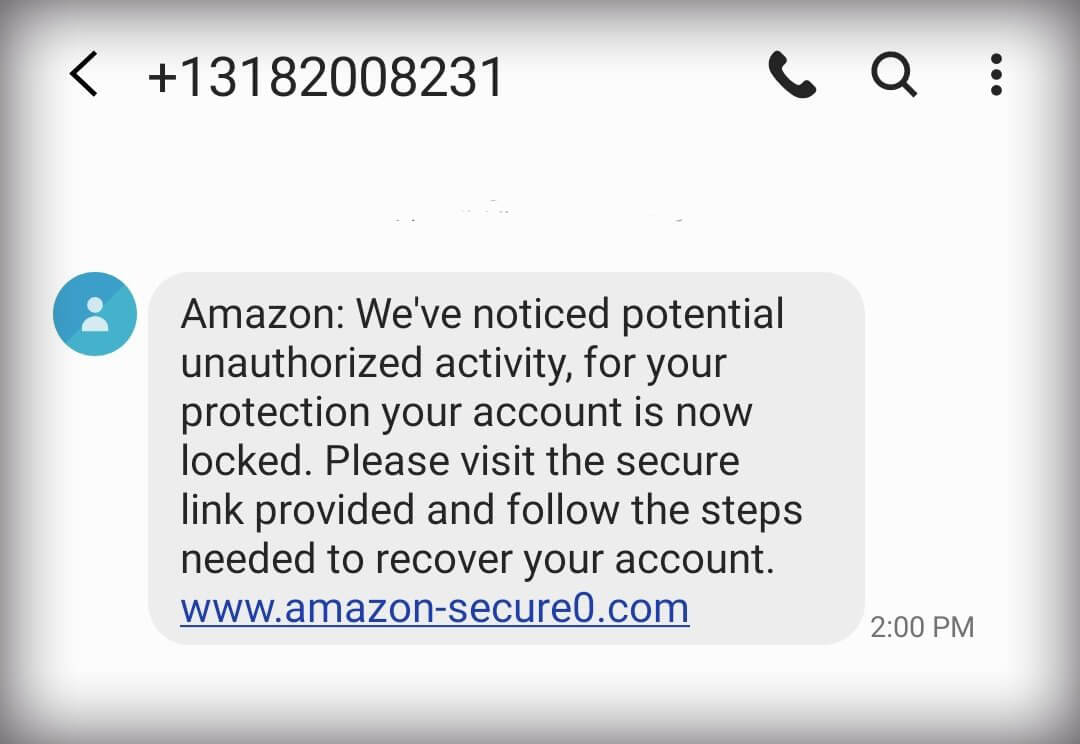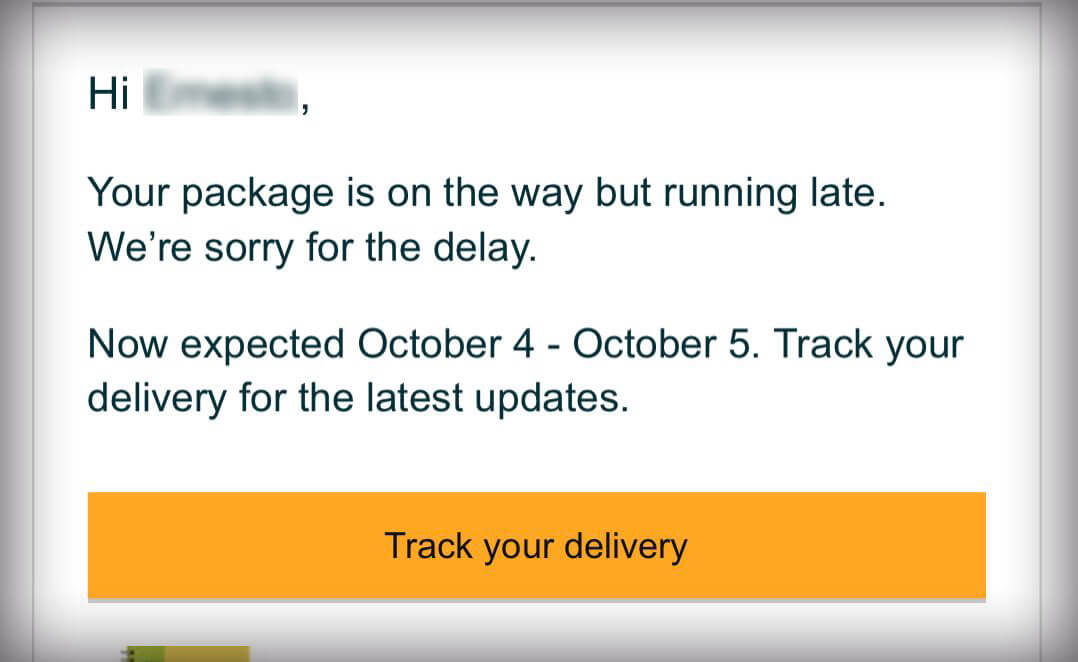Amazon Prime Scams: Things You Didn't Know
The Amazon Prime scams are extremely prevalent this time of the year, whether referencing Valentine's Day or Amazon Prime Day in general. Today, I dive deep into the intricate, dark side of the web and found seven common fraudulent activities that you could be a victim of. Let’s jump right in.
Here are the Top 7 scams.
Scam Detectors Most Trusted Websites in Online Security
- Guard.io (100): Surf the web safely. Clean up your browser, remove maliscious extensions and check for privacy violations.
- Incogni.com (100): Delete your personal data from the internet and protect against scams and identity theft.
- ExpressVPN (100) Stay secure and anonymous online - Best VPN Out There
- IPVansish (100) Fast VPN to stay safe and secure online with multiple discount plans.
1. Amazon Prime ‘Zombie' Listings
Commonly referred to as ‘zombie' listings, these are product pages in which customer reviews don't match the described product. What happens is scammers will search for inactive or abandoned listings with lots of great reviews.
“Once they find their target, they take control of the listing and update the images and descriptions to match the product they are selling”, says Patrick Connelly from Stellar Villa, a wall art company from Brooklyn.

“As a result, what was once a product page for a pair of socks with 1,000 5-star reviews, becomes a product page for a coffee mug. The scammer benefits because their brand new product displays 1,000 5-star reviews. At first glance, it appears to be a successful product that has been on Amazon for quite some time.”
However, in reality, none of the reviews are for the product you are thinking of purchasing. As a wary consumer, you need to do your due diligence. Read through a couple of customer reviews pages, don't only look at the review rating. This is one of the most common Amazon scams out there.
“Also, examine customer submitted images of the product. If you see repeated reviews or images that describe a product completely different than the one depicted in the listing, this could be a tell-tale sign of a zombie listing”, adds Connelly.
Let’s continue with six more Amazon Prime scams below. Assuming you're already familiar with the infamous Amazon Brushing and the Locked Account scams, here are more:
2. ‘Accidental' Charge
This next Amazon Prime scam takes advantage – as all fraud on the platform – of Amazon customers' naivety. The scam itself is along the lines of a phishing scam meant to trick customers into giving the scammers some money. How does it work?
“The scammers essentially cold-call customers as fraudulent amazon employees claiming that the customer has been accidentally charged for Amazon prime”, explains Omair Khan from Gigworker.
“The customer will then be forwarded to a customer service representative who will let them know that their account was compromised. They will continue to say that there was a glitch in their computer system. As a result, they need remote access to fix the problem.”
It is the new twist of the old Microsoft Tech Scam – only now it’s one of the top notorious Amazon Prime scams.
Giving criminals access to your computer allows them to get a hold of your credit card information as well as all the passwords you might possess. This could compromise all your accounts.
There is an email version of the Prime scam mentioned above, as well. Khan explains:
“Customers receive fraudulent emails saying they have accidentally purchased an Amazon Prime subscription and that they need to enter their cc (credit card) details into a website to receive a refund. Once the customer adds the details to the website, their information falls to the scammers who use it to get funds and purchases off the credit card information.”
By the way, before going into the next scam, below is a list of what we found on Amazon to be legitimate deals and products (you can also use the search bar):
3. New Amazon Account Opening
One consistently dangerous scam we expect to re-emerge on Amazon Prime Day is the Fraudulent Account Opening trick. These have been reported on in the past, and given the media attention surrounding APD, they're something to watch out for this month.
“The Amazon Account Opening scam works as follows: You receive a call, allegedly from Amazon, about a new Prime or Amazon Music account that's been opened in your name. When you press one to cancel, you're directed to a chat representative who will help you resolve the issue.”, explains David Kusik from House Method.
Once that fraudulent chat agent has remote access to your computer, there's no telling the damage they could do. Personal info like your credit card numbers and even your address can be of vital use to phishers, who'll stop at nothing to see their scam achieve profit (more credit card scams here).
“When you get this call, hang up, and report it. Don't fall victim to what's been an unfortunately persistent threat.”, says Kusik.
Want more Amazon Prime scams? There are four more.
4. Fake Amazon Review
A common scam growing in recent popularity is that of the Fake Amazon review. This time the fraud has a new twist. Do you know how to tell if Amazon reviews are real? Let's take a look.
Scammers reach out to unsuspecting victims on Facebook and Instagram. Then they offer them a free product in exchange for writing a 5-star review. The victim will then purchase the product, leave a great review, and send the scammer a screenshot. They expect to be reimbursed through PayPal. This, of course, rarely actually happens.
“This scam is problematic in two ways”, explains Deepak Shukla, the founder of Pearl Lemon.
“First, the person leaving the review loses their money and is left with a poor-quality, mass-produced product that they do not need. While on the other side, Amazon buyers may purchase the product, not knowing that the slew of glowing reviews are all fake.”
5. Amazon Prime Suspicious Activity
One of the most common phishing scams includes an email from scammers that looks like an official message from Amazon. The mail informs the recipients that their Amazon Prime accounts have been compromised due to suspicious activity. This way, the Amazon shipping of your product is in danger. Let's take a look at this attempt login scam.

“These phishing kits include the links or attachments in the email with offers that seem too good to be true”, says Garry Watson, from Golf Assured.
“When you click on these links, it will take you to a webpage that exactly looks like an Amazon login page. It is made to attract users to give the login credentials of amazon. The hackers can access the personal information stored in your Amazon account.”
“Most of the phishing kit will send the email account details, and the credit card entered on the site directly to the scammers.”
According to Watson, McAfee exposed the same scam done by 16Shop last year.
“To be safe, you have to take the extra precautions while clicking the links in the emails. Hover your cursor over the link they provide, so you can see if it takes you to Amazon or not. You can also check that domain of the email address is @amazon.com.”

6. Amazon Prime Account Update
This scam is based on the same patterns as the previous one. Let's see.
Scammers often send out emails masquerading as Amazon, prompting you to “update” your details on your account or face termination. But when you click the link, you'll either get malware, or you'll be taken to a fake website.
“Once they have your login details, it's bad news. They can access your account and steal or utilize the cards that are saved there or your personal information”, explains Heinrich Long from Restore Privacy.
7. Amazon Prime Phone Calls
Amazon scam calls have been increasing, especially among the senior community. Many of these scams revolve around creating a sense of urgency, such as telling you that your information has been stolen and asking for money to find a solution for it.
“When scammers call for your information, they'll often ask for more personal information than necessary. Though callers with a true problem may ask for your name or date of birth for verification, most won't ask for your credit card information, social security number, or other personal information. In either case, it's always a good rule of thumb to not give that kind of information over the phone if possible.”, warns Mason Miranda, from Credit Card Insider.
If you're ever worried that a Prime-related call is fake, hang up and find the official number for Amazon or the agency that called you on behalf of Amazon (which would likely not happen). Then, call back yourself and ask about whatever issue they brought up. Beware of the Amazon Prime call!
How To Avoid the Amazon Prime Scams
Many phishing emails and Amazon text messages pose as the real company in some form or another. Phishers will most often ask for your credit card information via email. They also tell you to click on an included link, picture, or video in the email. By doing so, you could release a virus onto your phone or computer, which could steal your information.
Never open an unrecognized or unsolicited email, including the one promoting the infamous Amazon Job. If it has an abnormal email address or includes misspelled words and paragraphs, it's probably a phishing email.
“Some forms of phishing are harder to pick out. A lot of these types of scams use social media, fake retail websites, or “you've won an award” pop-ups.”, says Miranda.
Before showing you how to report a scammer, make sure you also stay away from the fake Amazon Jobs From Home. Meanwhile, if your Amazon package arrived empty, you might have been a victim of Amazon Empty Box scam.
How To Report a Scammer
Had enough? Warn your family and friends about all these Amazon Prime Scams. Feel free to share the article if it was helpful. However, you can report scammers and any suspicious activity officially to the Federal Trade Commission (most important), the Office of the Inspector General, and the FBI Internet Complaint Center by using the pages below:
- Report To The FTC
- Submit Claim To The Office of the Inspector General
- Report To The FBI Internet Complaints Center
How To Protect Yourself More
Be the first to receive the most prevalent scams every week. Subscribe to the Scam Detector newsletter here. You'll receive periodic emails.
Meanwhile, educate yourself with some other Amazon fraud-related articles right under this paragraph, so that you know how to stay safe online. Last but not least, you can leave a comment to expose other Amazon Prime scammers.
Must-Read Articles:
Verify a website below
Are you just about to make a purchase online? See if the website is legit with our validator:
vldtr®


TOP 4 MUST-WATCH FRAUD PREVENTION VIDEOS
1. Top 5 Amazon Scams in 2024 2. Top 5 PayPal Scams in 2024 3. How To Spot a Scam Email in 2024
- Latest Posts by Selma Hrynchuk
-
Compromised Credit Card Scam
- -
Fake Google Chrome Update
- -
Facebook Privacy Notice Hoax
- All Posts














I am being contacted from a person who claims he is from amazon. Wants be to sign a contract for a movie for Prime video. I am a writer and Publisher and just starting into the field. This man is John Greene his phone is listed as Las angelus Ca. No. 323-825-3866. Want me to agree on a contract for $500,000.00. Looks tempting. Please advise.
Peg Teegarden 724-223-8080 Home Thank You for your time
As a senior and learned to use a computer by trial and error and new to online shopping I am very grateful for your emails. I’ve learned so much about scammers and it’s a little frightening. It’s disheartening that we must question everything now.
Thank you
Mary
Received scam phone call from a 1-786-728-9305 number from a person claiming to be Michael J. Marcs. Person claimed to be with Amazon Fraud Department and wanted to follow up on several attempted fraudulent purchases ( an I-Mac laptop and Apple I-pods) on my Amazon Account. Individual requested my Amazon Log in information. I replied I did not know who he was and that I was not going to provide any personal information over the phone. Individual replied that he was not requesting “personal information” and would transfer me to the police so I could file a fraud report. I hung up on him and have not heard back.
I’ve gotten quite a few of the Amazon scam emails or texts described in your article. The biggest one is something on the lines of “your purchase of XYZ product for $xxxx was successfull and will be sent, if you did not make this purchase click this link to notify us”
another is the “we can’t process your order because your credit card was declined. Click here to update your information”. The only way I deal with Amazon is by going directly to the site and checking things or making changes. But some of the things you talk about are new to me and I appreciate the information. I do always read reviews and have seen ones that review products completely different then the listed item. It always felt a bit odd and I never bought from them. I’m glad to know what that is.
I was conned into sending someone perporting to be a friend of even came through with his email address asking me to send him a e gift card for £200 which I did not knowing that his email account had been hacked so I am a pensioner living a fixed income and cannot afford to loos this money. So make sure it is actually your friends or family that are emailing you BEWARE THEY ARE ………